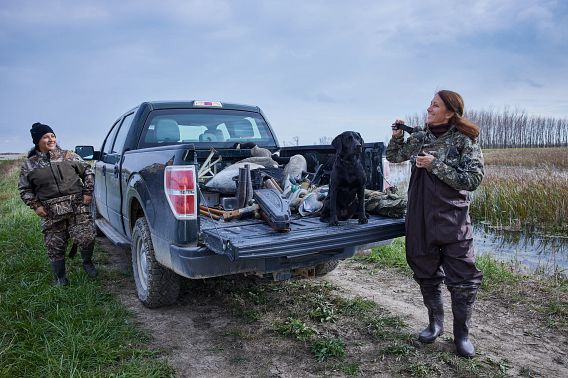By Jaqi Christopher, DNR Forest Invasive Plant Specialist, Rhinelander, Jacquelyn.christopher@wisconsin.gov
With the dropping temperatures and changing leaves, it’s beginning to feel like fall hunting season.
While you travel across the state to check hunting spots or tend to food plots, look for unwanted hitchhikers on your clothing and equipment. Seeds from invasive plants like garlic mustard, tansy and spotted knapweed can travel far distances in the mud on your vehicle, trailer, ATV, shoes and clothing.

Inspecting and cleaning vehicles, equipment, gear and pets before and after recreating can help slow the spread of invasive species. Photo credit: Wisconsin DNR
Once introduced, these invasives establish quickly, outcompeting native plants and damaging valuable wildlife habitats.
Do your part to slow the spread of invasive plants by cleaning your equipment before and after heading out to your favorite hunting spot this fall. Here are some other ways you can help:
- Learn to recognize invasive species.
- Be aware of seeds that stick to clothing and shoes.
- Inspect and clean hair, clothing, shoes, gear and pets before and after recreating.
- Clean equipment before and after use.
- Properly dispose of soil, seeds and plant parts after cleaning.
- Stay on designated trails, roads and other developed areas.
- Avoid areas infested with invasive species – “When in doubt, stay out!”
- Educate others on how to limit the spread of invasive species.
- Volunteer to help control invasive species.
If you think you’ve found an invasive species while recreating on public or private land, please send a location, description and picture to Invasive.Species@wisconsin.gov.
Learn more about invasive species and how to limit their spread on the Invasive Species Best Management Practices webpage.
